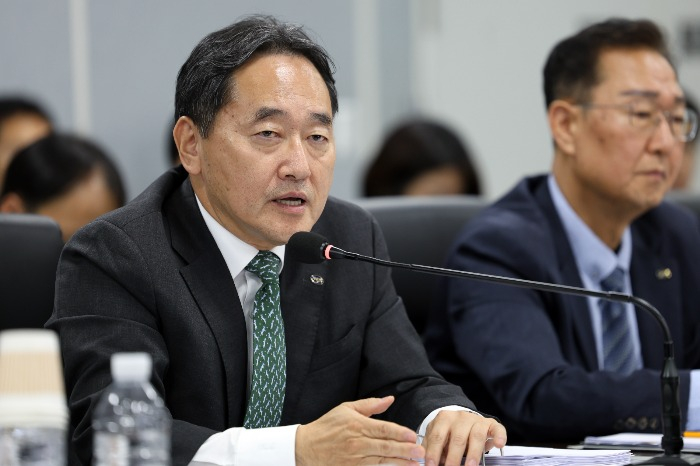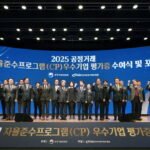
The National Pension Service (NPS) has estimated potential losses of about 900 billion won ($630 million) from its investment in MBK Partners-owned retailer Homeplus Co. and pledged tighter oversight in the selection of external managers and the monitoring of fund managers’ operations.
Homeplus, which entered court-led restructuring in March, is frequently cited in South Korea’s political and labor circles as a case of profit-driven management by buyout firms, prioritizing short-term gains over long-term business growth.
“We invested 612.1 billion won (in Homeplus) including equity, and have so far recovered 313.1 billion won,” Kim Tae-hyun, chairman of the South Korean pension scheme, said at an annual audit by the National Assembly Health and Welfare Committee audit on Friday.
“The fair-value estimate of what remains to be collected is around 900 billion won. Considering the current status (of Homeplus) in the corporate rehabilitation process, recovery remains uncertain,” he added.
NPS has invested 612.1 billion won in Homeplus, including 582.6 billion won through redeemable convertible preferred shares (RCPS), to back MBK’s 7.2-trillion-won acquisition of the retailer from Tesco in 2015.
SUSTAINABLE GROWTH OVER ASSET SALES
Asked whether NPS would reconsider its private equity investment approach, Kim said the fund will strengthen evaluation standards of general partners, or external investment managers.
“When selecting fund managers, we will set the evaluation criteria based on whether past profits were generated by selling assets or by growing the business,” he told lawmakers.
Baek Hye-ryun, a lawmaker of the ruling Democratic Party, criticised the NPS of entrusting citizens’ retirement money to “a predatory private-equity fund,” referring to its new mandate awarded to MBK in February.
In September, MBK issued a public apology over the financial crunch at Homeplus, saying it failed to fulfill its social responsibility for the South Korean hypermarket chain. It marked an unprecedented move for the private equity firm in the country.
Meanwhile, the NPS chairman signaled a potential shift toward higher domestic equity exposure, citing the recent pension reform that raises contribution rates and delays projected fund depletion.
“It’s time to reassess our domestic equity allocation,” he said.
But he cautioned that any adjustment must account for the possibility that the absolute investment volume could still rise, even if the proportion of equities declines.
By Gyeong-Jin Min
min@hankyung.com
Yeonhee Kim edited this article.















